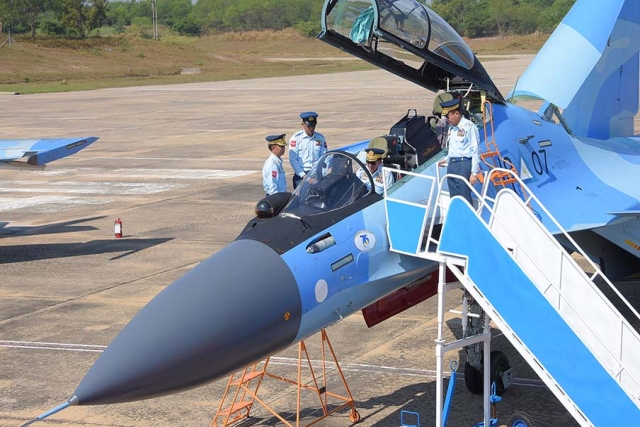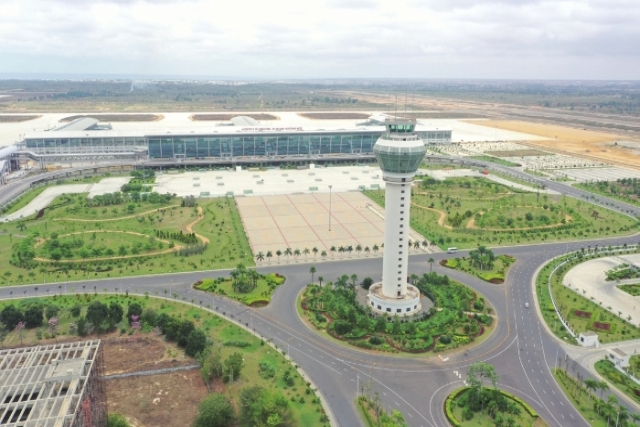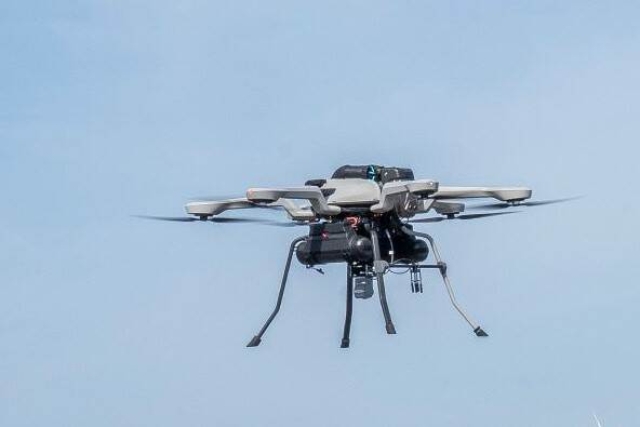China, Myanmar Re-start Bay of Bengal Deep Seaport Project
Of strategic importance to Beijing, the Kyaukpyu Seaport will allow land-access through Southern China and reduce dependence on South East Asian sea lanes.
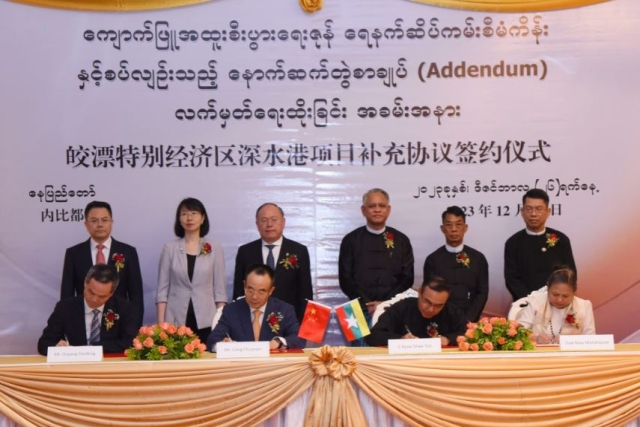
In a development aimed at bolstering economic ties and regional connectivity, China and Myanmar have officially recommenced the Bay of Bengal Deep Seaport Project in the Kyaukpyu Special Economic Zone.
The Addendum to the Concession Agreement was signed at a ceremony held in Nay Pyi Taw, attended by high-profile dignitaries from both nations, Myanmar’s government announced on December 27.
The signing ceremony was graced by the presence of General Mya Tun Oo, a Member of the State Administration Council and Deputy Prime Minister, who is also the Union Minister for Transport and Communications as well as representatives from CITIC Group and the Embassy of the People’s Republic of China.
Addressing the gathering, General Mya Tun Oo highlighted the strategic importance of Kyaukpyu township, located in the Bay of Bengal, as a key site for future development. The Kyaukpyu Special Economic Zone, established in 2011, has paved the way for international investments, with the deep seaport project playing a crucial role in supporting the country's economic growth.
The Kyaukpyu Deep Seaport Project, the first international seaport in Myanmar, is part of a four-phase initiative featuring ten jetties capable of accommodating approximately seven million 20-foot containers annually upon completion. The project is expected to streamline trade routes, offering a shorter and more cost-effective route for imported products from South Asia, West Asia, and Africa to reach the Chinese mainland.
The China-Myanmar Economic Corridor (CMEC), a 1,700-kilometer project connecting Kyaukpyu to Kunming in China, has faced delays in recent years due to the COVID-19 pandemic and coordination challenges. The Addendum to the Concession Agreement aims to expedite the resumption of the deep seaport project, providing economic opportunities, job creation, and fostering bilateral trade between the two nations.
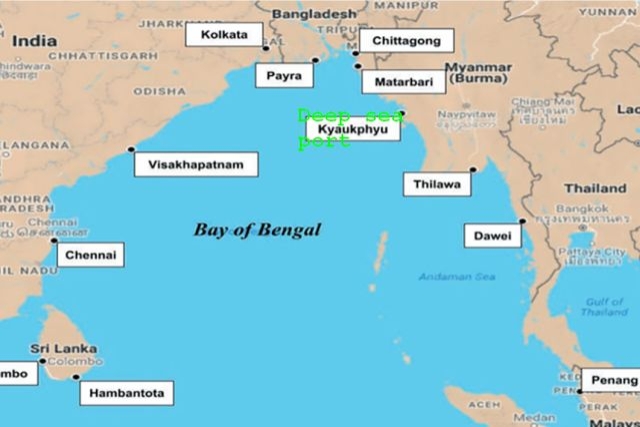
The port in Kyaukpyu located on the western coast in Rakhine state, Myanmar holds strategic significance for China, being near an Indian submarine base on its east coast, close to Visakhapatnam. Despite its proximity to India's influence, the port will play a crucial role in the China-Myanmar economic corridor and President Xi Jinping's Belt and Road Initiative (BRI).
The existing oil and gas pipelines between Kyaukpyu and Kunming in China already contribute to regional connectivity. China emphasizes the BRI as a platform for economic integration, job creation, and mutual growth along its routes.
China has played a role in the construction of ports such as Gwadar in Pakistan and Hambantota in Sri Lanka. Additionally, it provided financial support for the advancement of the Chittagong port in Bangladesh.
